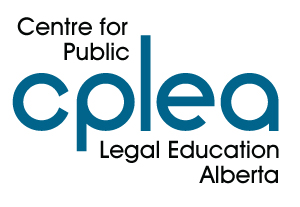These online FAQs about international travel are provided by the Canadian Legal FAQs - a program of the Centre for Public Legal Education Alberta. These FAQs contain information you will need before, during and after your time abroad, as well as links to sources of further information.
This section features resources about driving in Alberta. As well, this section includes information about travelling with children, air travel and transportation for people with disabilities and information about international travel. As far as legal topics related to leisure, check out the resource about sports and the law.
The resources on this page were hand-picked by the Centre for Public Legal Education Alberta's staff as a good place to start.
You may also find helpful resources listed under these legal topics: Travel, Transportation, Driving, Sports
CPLEA Suggested Resources
Not sure where to begin finding answers to your questions. Get started with our suggested resources. See additional resources below for more information.
Parents of children from infants to teens know that travelling can involve a huge amount of paraphernalia. Everything from teddy bears and diaper bags to ipads and smart phones must be lugged along. But most parents who travel with children may not be aware of the legal requirements they must meet if they travel without the child’s other parent or guardian. So, did you know.....This information is provided by the Centre for Public Legal Education Alberta.
Alberta Resources
This Alberta government webpage provides information on recent changes to Alberta’s alcohol- and drug-impaired driving offences and sanctions to align with new federal drug laws are now in effect. Information covered includes:
- zero tolerance for cannabis or illegal drugs in the blood stream of GDL drivers, in addition to alcohol
- immediate 90-day licence suspension for impaired drivers, followed by participation in a one-year ignition interlock program
- blood-drug concentration limits and criminal penalities
The Alberta Motor Transport Association is a province-wide, not-for-profit Association formed to provide a voice for the highway transportation industry in Alberta. The role of the AMTA is to help its members succeed by providing training programs and promoting safety initiatives that reduce workplace injuries. They represent the highway transportation industry at the provincial and national levels in dealing with issues such as regulations, trans-border crossings, taxation, safety, the environment, and the future of trucking.
Dept. of the Alberta government that regulates drivers and vehicles, roads and highways and commerical transportation in Alberta.
Summary, collision worksheet form, tips to remember and steps to follow after an automobile collision.
Sharing services for bicycles, e-bicycles and e-scooters are now available in Edmonton. This City of Edmonton webpage provides information on where use is allowed and what the parking requirements are.
This guide provides key resources related to Impaired Driving Offences in Canada. It also includes materials dealing with non-criminal impaired driving offences within the legislation of the province of Alberta. Topics in this guide include:
- Defences
- Evidentiary issues
- Impaired driving devices
- Sentencing/Penalties
Alberta has a demerit point system where demerit points are accumulated against your driver’s license for each traffic offence you are convicted off. Demerit points are assigned to a driving record in accordance with the Regulations under the Motor Vehicle Administration Act. This information is provided by Calgary Legal Guidance.
A publication of Student Legal Services of Alberta. It covers: basic definitions, licence rules, ways a licence can be suspended, and how to appeal a suspension / disqualification or Criminal Code offence conviction.
Service Alberta is responsible for providing numerous motor vehicle and related services through the registry agent network. Motor vehicles services include driver and vehicle licensing, motor vehicle searches, driver’s abstracts, payment of fines, and personalized licence plate applications and many more. The ministry also oversees Alberta’s expansive Motor Vehicle Database. Service Alberta administers motor vehicle programs jointly with Alberta Infrastructure and Transportation.
This online resource from the Government of Alberta provides links to topics related to automobile insurance. Topics include: Standard Auto Insurance Policy and Endorsements; Auto Insurance Complaints; Auto Accident Benefit Claims and Minor Injuries; Auto Insurance Studies and Reports; and What to do after an Auto Collision.
In Alberta a valid licence plate must be displayed on your vehicle at all times. Check out this page to find out more abouthow to acquire a plate and what options are available to you.
On this page you will find information on how to renew or replace a driver's licence, get a licence plate or a parking placard for people with disabilities, exchange a licence from outside Alberta, Update driving documents, and more
This handbook is a good source in understanding the rules and regulations applying to small vehicles in Alberta such as motorcycles, mopeds, and power bicycles.
This booklet from Alberta Justice provides general information about proceedings in Traffic Court. Contents include: You Have Been Charged with An offence. Now What?; Do You Need an Interpreter?; Lawyers and Agents; How do You Get A Lawyer or an Agent?; Legal Aid; Alberta Law Line; Other Services; Your First Court Appearance; If You Plead Not Guilty; If You are Thinking of Pleading Guilty; Where and When will the Trial be?; Getting Ready for Trial when You Have Plead Not Guilty; What Happens at Trial?; Sentencing; and Victims of Crime Surcharge on Offenders.(PDF - 16 pages)
This webpage provides general legal intormation on the types of traffic tickets that you may receive for a traffic offence. Traffic tickets include:
- Traffic tags
- Traffic tickets with a specified penalty amount
- Multi-Nova speeding tickets
- Traffic summons where you must appear in Court
Canada/Federal
The British Columbia Civil Liberties Association (BCCLA) has re-launched an online guide about privacy rights related to electronic devices – such as laptops, cellphones, and tablets – at the border. It’s aimed at people crossing the border into Canada or departing for the U.S. through preclearance areas in Canada. It is available in English in both a short guide and a full guide and available in French, Mandarin, Punjabi, Tagalog, Spanish and Arabic.
This information on impaired driving laws in Canada is prepared by Canada Dept. of Justice. It covers:
- Drug-impaired driving and
- Alcohol-impaired driving
It is important to note that provinces and territories have additional laws or regulations that may apply. Make sure to check the laws in your area. Please visit Canada’s impaired driving webpage for statistics, research, and more information on the dangers of driving while impaired.








Follow CPLEA